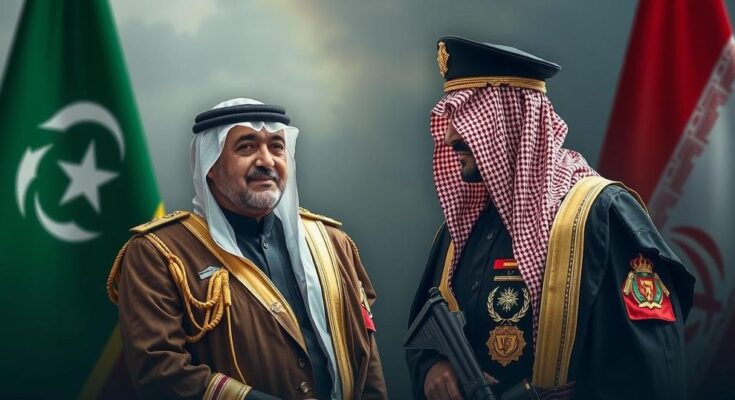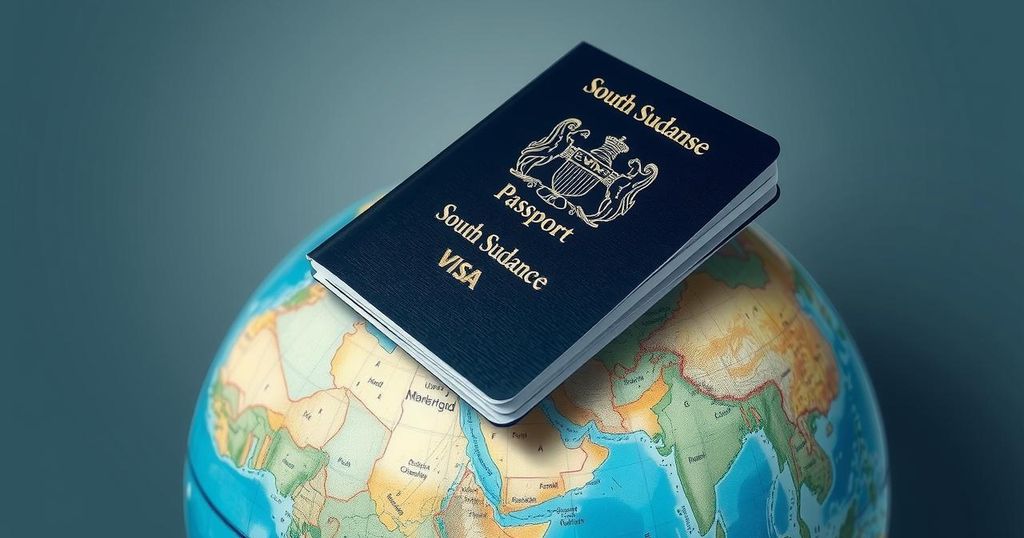Saudi Arabia’s military chief met with his Iranian counterpart in Tehran, marking a significant step toward improved relations following years of hostility. This visit comes alongside ongoing discussions about Israeli-Saudi ties and a firm rejection by Saudi officials of Israeli actions in Gaza, amidst calls for ceasefires and a two-state solution. The war in Gaza has resulted in substantial casualties, prompting urgent calls for regional unity and cooperation.
In a potentially transformative development for the Middle East, General Chief of Staff of Saudi Arabia’s Armed Forces, Fayyad al-Ruwaili, recently visited Tehran for a significant meeting with his Iranian counterpart. This visit marks a notable shift following a period of heightened tensions between Iran and Saudi Arabia, which only recent agreements have begun to stabilize. The backdrop involves the increasing attention on the region with the impending second term of U.S. President Donald Trump, igniting further dialogues around Middle Eastern alliances. Contrary to Saudi Arabia’s longstanding absence of diplomatic ties with Israel, discussions about potential relations have occurred between Crown Prince Mohammed bin Salman and Jared Kushner, son-in-law to the former U.S. president. Such exchanges hint at a strategic shift within the region amid fluctuating geopolitical landscapes. Furthermore, previous communications between Iranian and Saudi defense officials hint at a growing defense cooperative stance, aimed at addressing shared regional security concerns. Amidst these developments, a convergence of Arab and Islamic leaders took place in Riyadh to deliberate on the crises unfolding in Gaza and Lebanon. During the summit, Crown Prince Mohammed bin Salman publicly condemned the Israeli actions in Gaza, characterizing them as a form of genocide against the Palestinian populace. He emphasized Saudi Arabia’s commitment to a unified regional response to the escalating conflicts. The initiation of hostilities in Gaza on October 7, 2023, has resulted in significant casualties, with Hamas militants conducting lethal attacks against Israeli communities. Notably, statistics from the Israeli government indicate approximately 1,200 Israeli fatalities and 253 hostages taken, while Palestinian sources report approximately 43,500 fatalities resulting from the Israeli military’s retaliatory operations in Gaza. The Saudi Foreign Minister recently pressed for an immediate ceasefire, reiterating support for a viable two-state solution to the protracted Israeli-Palestinian conflict.
The historically fraught relationship between Saudi Arabia and Iran has been characterized by mutual suspicions and rivalry, contributing to regional instability in the Middle East. However, efforts toward reconciliation have been made, as seen in their agreement to re-establish diplomatic relations in March 2023 after years of hostility. This emerging cooperation takes place against a backdrop of complex political dynamics, particularly with U.S. foreign policy under the Trump administration influencing regional alliances. The situation is further complicated by the ongoing humanitarian crisis in Gaza, ignited by Hamas’s attacks and subsequent Israeli military actions, intensifying the need for unified Arab responses to the conflict.
The recent visit of the Saudi military chief to Iran signifies a potential turning point for relations in the Middle East, emphasizing the need for collaborative approaches to regional security amidst ongoing tensions. Saudi Arabia’s outspoken condemnation of Israeli actions in Gaza highlights its support for the Palestinian cause, while calls for a ceasefire and a two-state solution reflect the continued quest for peace amid conflict. The evolving dynamics between these nations may reshape future alliances in the region.
Original Source: www.india.com




